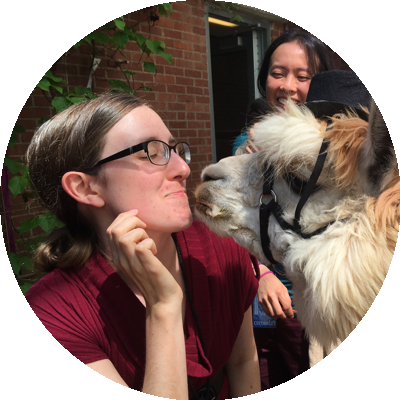The Curriculum and Trainers for Collaborative Lesson Development Training
Earlier this week we announced the launch of a new program of Collaborative Lesson Development Training. Today I would like to provide some more details about the content of the training, and the community members who will be teaching it.
Lesson Developer Trainers
Following a first round of Trainer Training we have a cohort of eight Trainers who will lead the events. These Lesson Developer Trainers are experts in curriculum development drawn from The Carpentries community. They have a wealth of experience in design, development, and maintenance of lessons gathered from activities both within and outside The Carpentries.
 Ann Backhaus Education & Training Manager Pawsey 🇦🇺 |  Erin Becker Associate Director The Carpentries 🇺🇸 |  Tim Dennis Director of the Data Science Center UCLA Library 🇺🇸 |  Toby Hodges Director of Curriculum The Carpentries 🇩🇪 |
 Mateusz Kuzak Team Lead Training Programme Netherlands eScience Center 🇳🇱 |  Aleksandra Nenadic Training Lead Software Sustainability Institute 🇬🇧 |  Sarah Stevens Director of the Data Science Hub University of Wisconsin - Madison 🇺🇸 |  Mike Trizna Data Scientist Smithsonian Data Science Lab 🇺🇸 |
The Training Curriculum
Collaborative Lesson Development Training teaches skills and concepts in three broad categories:
- Lesson design & development
- Collaboration
- The Carpentries lesson infrastructure
Lesson Design & Development
Collaborative Lesson Development Training guides trainees through a process of iterative, backward lesson design, inspired by Understanding by Design and Nicholl’s five phases of curriculum design, with a particular focus on design strategies for short-format training. Trainees leave with a published lesson website, containing a complete outline of their lesson and content fully drafted for selected sections.
What concepts and skills does the curriculum teach?
By participating in these sections of the training, trainees will learn the importance of identifying the target audience of their lesson, how and why to define what they want this audience to learn, and techniques to include tasks for effective assessment of learner progress throughout their content. They will also learn about how feedback should guide the development of lessons, and strategies for ensuring that this feedback is gathered at the right times throughout the process.
What activities do trainees follow?
While following these elements of the training, trainees will:
- describe the target audience for their lesson, including expected prior knowledge and common misconceptions about the lesson topic that learners might arrive with
- define the desired outcomes of their lesson - what learners should know how to do when they finish the lesson - and the fine-grained objectives of individual sections to the lesson that will lead to these higher-level goals.
- design exercises in a variety of formats to help assess and provide actionable feedback on learners’ progress
- choose an appropriate narrative and/or example dataset to use in their lesson
- teach selected sections of the lesson and gather feedback to inform subsequent iterations on their lesson content
Collaboration
Reflecting the typical approach of The Carpentries community, Collaborative Lesson Development Training places emphasis on lessons as open source projects. Subsequently, a large portion of the training is devoted to exploring skills and practices to enable effective collaboration.
What concepts and skills does the curriculum teach?
By participating in these sections of the training, trainees will learn how to prepare and manage a lesson repository to welcome and encourage newcomers to the project, practices to improve coordination and communication between collaborators, and approaches that can be taken to establish sustainable project governance.
What activities do trainees follow?
While following these elements of the training, trainees will:
- document their lesson project to make it easier for people to contribute
- implement project management strategies to facilitate regular progress on lesson development
- practice collaborating on GitHub by opening and reviewing pull requests
- discuss the processes and structures of governance that would be appropriate for their project
The Carpentries Workbench
In addition to teaching how to design and collaborate on a lesson, Collaborative Lesson Development Training also guides trainees through the process of creating and populating an open source lesson using The Carpentries lesson infrastructure, the Workbench.
What concepts and skills does the curriculum teach?
Trainers will demonstrate how to create and configure a new lesson repository using The Carpentries infrastructure, and how to begin adding content to build up a lesson website. Trainees will learn how to write accessible content using the syntax and structure of a Carpentries Workbench lesson, and how to ensure that the resulting lesson is useful to both learners and instructors.
What activities do trainees follow?
While following these elements of the training, trainees will:
- create a lesson website
- add pages to that site, creating the structure of the lesson
- draft accessible content for those pages, including exercises, images, and example code blocks
The Collaborative Lesson Development Training curriculum is available online, for those who want to explore it in more detail. We hope the community will find it useful, and we look forward to seeing them create even more, even better lessons together in the future!